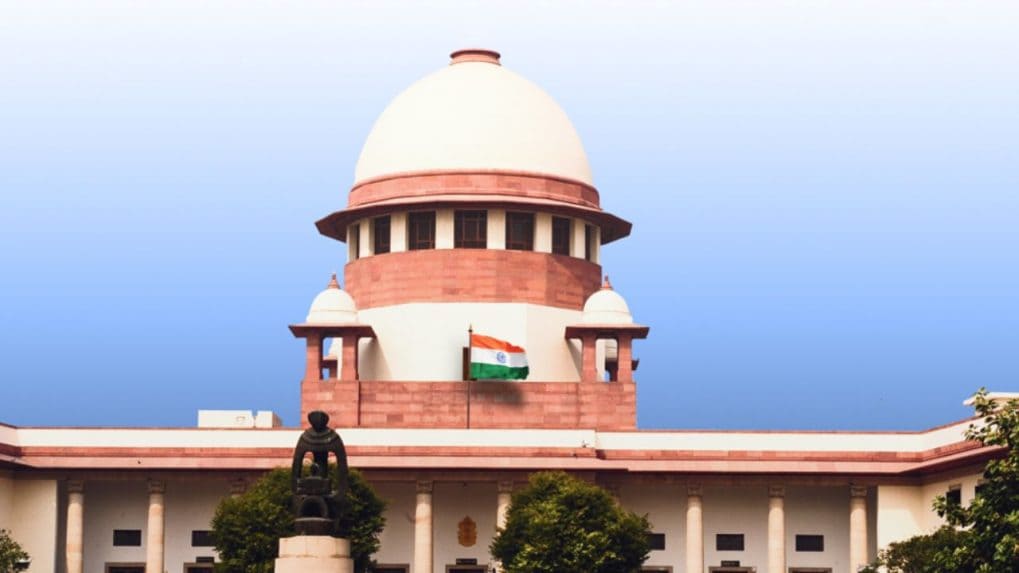‘Unjust and arbitrary’: Casinos tell SC that GST on total bets defies logic, law, and constitution
During the hearing it was also pointed to the findings of the Group of Ministers (GoM) appointed by the GST Council, which acknowledged that taxing each round of play or applying GST on full bet value is “neither feasible nor desirable.
ADVERTISEMENT
On Tuesday, division bench of the Supreme Court comprising Justices JB Pardiwala and R. Mahadevan heard batches pertaining to casinos challenging Rule 31A(3) of the Central Goods and Services Tax (CGST) Rules, 2017. The petition contends that the rule imposes an excessive, arbitrary, and confiscatory tax burden on casinos by pegging GST liability to the total face value of bets rather than actual earnings.
Senior Advocate Kavin Gulati argued that Rule 31A(3) has no reasonable nexus to the taxable event — i.e., the supply of services — and therefore violates Article 14 of the Constitution. The petitioner operates ‘MV Majestic Pride’, a vessel-based casino offering gaming services and hospitality in North Goa.
Rule 31A(3), which was brought into effect on January 23, 2018, mandates that casinos pay GST on 100% of the face value of bets placed by players. According to Gulati’s submissions, this leads to a situation where casinos are taxed on amounts they never retain as revenue.
In a detailed illustration submitted to the Court, it was demonstrated that even when a customer enters the casino with ₹1 lakh, places multiple bets using the same chips, and ultimately exits with zero net winnings or losses, the casino would still be liable to pay 28% GST on the total cumulative bets placed — potentially amounting to many times its actual revenue.
Gulati emphasized that casinos issue chips against deposits, which are held in trust and returned to customers at the end of gaming sessions. The gross gaming revenue (GGR), he explained, is calculated as the difference between the chips purchased and returned — not the aggregate value of every bet placed.
“Unlike lotteries where face value of tickets is known and fixed, or airline tickets and insurance policies where only a portion of the fee is taxed, casinos operate in a dynamic, real-time environment where it is impossible to track individual bets, especially when players move between tables and use winnings to re-bet,” Gulati argued.
The submission further noted that no machinery provision exists in the CGST framework to accurately assess the total face value of multiple bets, leading tax authorities to resort to estimation methods based on industry ‘hold ratios’ or ‘house margins’ — an approach that varies between assesses and lacks consistency.
For the financial year 2018–19, Golden Peace Infrastructure reported a gross gaming revenue of ₹147.08 crore. Operational expenses and various taxes already amounted to ₹132.16 crore, leaving only ₹14.92 crore as net profit. Yet under Rule 31A(3), the company’s GST liability alone was assessed at ₹228.79 crore — exceeding its total revenue. With added penalties and interest, the total demand balloons to ₹756 crore.
“This is a textbook example of confiscatory taxation,” Gulati stated. “An effective tax rate of 155% of GGR is not only unsustainable but constitutionally untenable under Section 9 of the CGST Act, which caps GST at 20%.”
Senior Advocate Tarun Gulati, representing Golden Peace Hotels and Resorts Pvt. Ltd. and Golden Gaming International Pvt. Ltd stated that that the current tax mechanism unjustly imposes GST on amounts that never accrue to casinos, thereby violating the CGST Act’s core provisions and constitutional guarantees of equality and fairness.
The central plank of Gulati’s argument is that casinos do not receive the full value of bets as income or consideration. Instead, they earn a portion—referred to in industry terms as Gross Gaming Revenue (GGR)—which is the net amount remaining after payouts to winners. In many cases, casinos may even incur losses, depending on outcomes of games.
To illustrate, Gulati cites an example where 50 players each purchase ₹1,000 in chips (totaling ₹50,000) and collectively place bets worth ₹10 lakh over multiple games. If players make a cumulative net gain of ₹20,000, the casino incurs a ₹20,000 loss and earns nothing. Yet, under Rule 31A(3), GST is demanded on the entire ₹10 lakh, resulting in a ₹2.8 lakh tax bill—14 times more than the actual earnings or even in the absence of income.
Another significant argument advanced is the application of the legal doctrine of diversion of income by overriding title. Gulati contends that any amount received by casinos is immediately subject to a statutory and contractual obligation to pay players—either the return of their bet or winnings. As such, the income is not actually realized by the casino and should not be subject to GST.
Gulati also pointed to the findings of the Group of Ministers (GoM) appointed by the GST Council, which acknowledged that taxing each round of play or applying GST on full bet value is “neither feasible nor desirable.” The GoM had recommended a more rational taxation approach, considering chips as prepaid tokens with GST collected at the point of sale.
Supreme Court will continue to hear the matter on July 23.
Read More: Supreme Court takes over PILs against opinion trading platforms
Read More: Player transactions not operator’s tax burden, gaming firms argue in Supreme Court
Read More: Delta Corp to SC: GST based on ‘Imaginary Values’, hearing to continue next week


